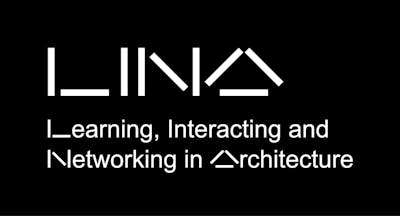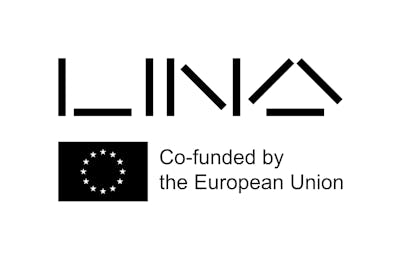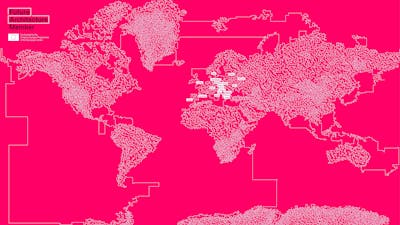New collaborations: Emerging perspectives and films
International creatives join the discussion

Meet the three emerging practices from Estonia, Hungary and Switzerland that are now working on a film project with Oslo Architecture Triennale, and will be coming to Oslo in March.
As member of the LINA community, the Oslo Architecture Triennale, together with 33 other prominent cultural organisations and institutions in the field, contributes to an international platform for knowledge exchange for young and emerging voices. Each year LINA organises a public programme dedicated to fostering change in architecture, encouraging practices that are sustainable, circular, and environmentally committed.

The European architecture platform LINA is a network of 33 architectural museums, universities, research networks, foundations, triennials, biennials, and other European architectural organisations.
As part of the LINA Architecture Programme, the Triennale has invited three young creative teams from Europe, to develop a short film focused on a case from their own context. The films respond to the theme “What if nature comes first?” and bring forward three different perspectives to the Triennale research, reflecting upon topics of value definition, the impact of materials extraction in the landscape, and informal practices of circularity. The three fellows will come to Oslo on the 13th March to participate in a round table conversation organized by the Triennale and the Oslo Architecture Association. The selected Lina Fellows for the 2025 cycle are kuidas.works, HARVEST SALON and girlscanscan collective.

Studio kuidas.works, founded in 2021 as a nonprofit organization, constitutes a multidisciplinary collective of designers, architects, builders, recent graduates, and faculty members affiliated with the Estonian Academy of Arts. The studio is dedicated to advancing ecological construction methodologies within the paradigm of contemporary building practices. Central to its research agenda is the valorization of excavation waste, repurposed into sustainable construction materials, including rammed earth, compressed earth blocks, mortar, plaster, and clay paint. By fostering innovative material applications, kuidas.works aims to catalyze a transition toward resource-efficient and environmentally conscious practices in the construction industry, while critically examining the semiotic dimensions, aesthetic qualities, and technological possibilities of emergent materialities.
The studio was founded by Andrea Tamm, Maria Helena Luiga, Hannes Praks, and Henri Papson with the latest additions to the team being Kaarel Kuusk, Sven Samyn, and Malvo Tominga.

HARVEST SALON is a design and filmmaking collective founded by Livni Holtz, Sebastian Reinicke, and Nicolas Seiler. Based in Germany and Switzerland, they are practicing at the intersection of architecture and design, seeking to foster emancipatory processes within communities through artistic research and interventions.
Rooted in an ongoing engagement with an Alpine farming community and its communal labor system, their work explores new ways of engaging with and relating to rurality. Addressing the expanding urban-rural divide, Harvest Salon aims to establish platforms for cross-regional engagement, grounded in shared responsibilities for common resources.

girlscanscan collective was established at the Bercsenyi Architecture Student Studio (Bercsényi Építész Szakkollégium) at the Technical University of Budapest. Since 2020, they have been researching the built environment of the former Eastern Bloc, exploring both tangible and intangible layers of the socialist urban fabric. They also seek to connect these experiences with the post-socialist reality of their childhood in the 1990s and 2000s besides today’s heritage discourse.
Eszter Hegedűs is based in Budapest and is co-directing the presidential board at the Studio, while Lilla Kammermann, currently residing in Weimar, Germany, is engaged in urban studies and architecture theory.



